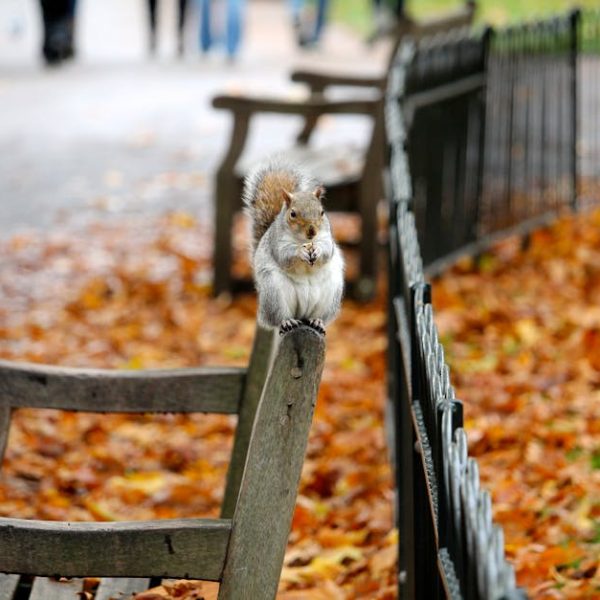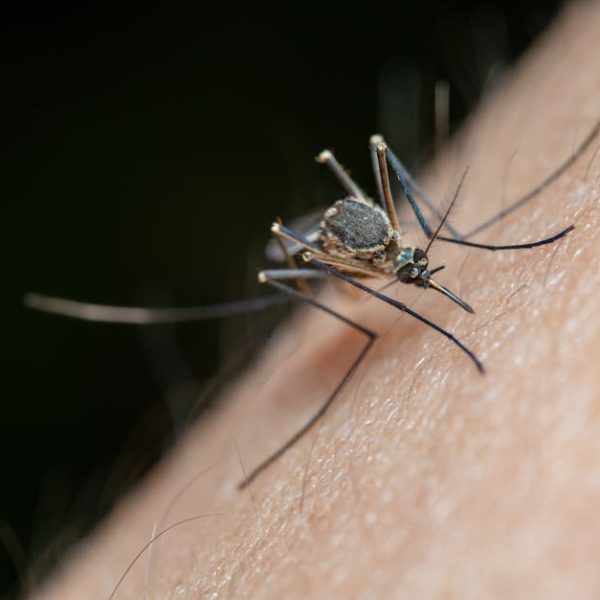Dealing with a squirrel invasion can be a daunting task for many homeowners. Armed with the right strategies, however, you can take back your home and garden from these furry intruders. In understanding the behavior of squirrels, taking preventive measures, and using repellents, you can effectively tackle the problem. Professional help is a reliable last resort when all else fails.
Understanding the Behavior of Squirrels
Being inquisitive creatures, squirrels may often cross paths with humans. They’re opportunistic foragers, hunting for food more actively during mornings and evenings. Squirrels are primarily attracted to residential areas due to easily available food sources and potential nesting places. By investing time in understanding their behavior and lifestyle, you can predict their activities and implement effective countermeasures.
- Best Practices:
– Observe their feeding times, which are early in the morning and late in the afternoon.
– Notice tree routes they commonly use to access your property.
– Keep an eye out for potential nesting spots like your attic or large trees nearby.
Preventing Squirrels from Entering Your House
Squirrels commonly gain entry into homes via gaps in the roof, soffit intersections, and suspended ceiling spaces. They are skilled climbers and can easily navigate tree branches, fences, cables, and vines. By fortifying these areas and denying them easy access, you can significantly limit their intrusion.
- Checklists:
– Inspect your house regularly for cracks, gaps, or broken fascia boards.
– Seal all potential entrances using a mesh or wire hardware cloth.
– Trim trees in the vicinity of your house to deny them easy access.
Making Your Garden Less Attractive to Squirrels
Your garden is a playground for squirrels, offering food, shelter, and a safe haven to raise their young. By switching to squirrel-repelling plants and making specific landscaping efforts, you can make your garden less attractive to these critters.
- Comparisons:
– Gardens with an abundance of fruiting and nut-bearing plants are more likely to attract squirrels.
- Lists:
– Consider growing plants that squirrels dislike, such as daffodils, hyacinths, and allium.
– Incorporate measures like squirrel-proof bird feeders and avoiding ground feeding.
Utilizing Squirrel Repellents
Commercial squirrel repellents, available in forms like sprays, granules, and electronic devices, can be very effective if used correctly. They usually contain ingredients that irritate the squirrels, hence deterring them from your property. Homeowners can also consider homemade repellents which can be safe, cost-effective, and environmentally friendly.
- Pros and Cons:
– While commercial repellents can be potent, they can also be harmful to other wildlife and may not be a lasting solution.
– Homemade repellents, however, might require frequent application because their effect typically fades over time.
Seeking Professional Help
There are scenarios where a squirrel invasion may be overwhelming for a homeowner to handle alone. In such cases, it’s best to seek professional pest control help. However, it’s crucial to choose a service that is licensed, reviewed, and uses humane removal methods.
- Pro tips:
– Check if the company has a pest controller license.
– Look up customer reviews and ratings.
- Lists:
– Beyond reputation and licensing, consider their experience, methodologies, and quotation before making a choice.
5 Easy Ways to Tackle Your Squirrel Problem
Understanding the Behavior of Squirrels
Squirrels are creatures of habit, so the best way to deal with them is to truly understand their behavior. They hunt for food in the mornings and evenings, spending most of the day resting in their nests.
Why do they love our homes so much? It’s simple, we provide easy access to food and comfortable lodging. By better understanding their habits and behaviors, you can predict their activities and take effective action to prevent damage to your property.
- Best practices include:
– Keep an eye on the areas where squirrels appear most frequently in your property.
– Take note of the routes they use to navigate.
– Track their activities during the day to gain insights into their habits.
Preventing Squirrels from Entering Your House
Squirrels are agile climbers making roofs and attic entrances an easy point of access. However, with a proactive approach, you can effectively seal these entry points and prevent a squirrel invasion.
- Here’s a handy checklist:
– Inspect the exterior of your house for any small openings or cracks. Squirrels need only a small gap to squeeze through.
– Apply wire mesh over these holes or cracks to stop squirrels from entering.
– Keep a close watch on branching paths from trees or bushes near your house. These can be highways for squirrels.
Making Your Garden Less Attractive to Squirrels
Your garden’s layout can be a paradise for squirrels if not well-planned. By choosing the right types of plants, you can make it less attractive for squirrels.
Here’s a comparison table of different types of plants:
Plant Types and Squirrel Attraction
| Plant Type | Attractive to Squirrels? |
|---|---|
| — | — |
| Berries | Yes |
| Sunflowers | Yes |
| Corn | Yes |
| Daffodils | No |
| Alliums | No |
| Hyacinths | No |
- Keep these key points in mind:
– Plant more daffodils, alliums, and hyacinths which are known to be disliked by squirrels.
– Protect your bird feeders. Bird seeds are a free buffet for squirrels, so make sure to keep them out of their reach.
Utilizing Squirrel Repellents
Squirrel repellents come in various forms, from commercial ones you can buy off the shelf at a garden store to homemade ones. They work by deterring squirrels in non-harmful ways.
- Here are some pros and cons:
– Commercial repellents can be potent and long-lasting, but they can also harm biodiversity in your garden.
– Homemade repellents, though safe and inexpensive, may require more frequent application.
Seeking Professional Help
In severe infestations, it might be a good idea to call in professionals. But, keep in mind the importance of choosing the right company.
- Here are some tips:
– Make sure the company has proper licensing and good reviews.
– Ask them about their removal techniques. Safe and humane methods are a must.
While their furry antics can entertain, squirrels can become a nuisance when they invade our homes and gardens. However, armed with these strategies, you can protect your property effectively and peacefully cohabit with these intelligent creatures.
Key Takeaway:
- Understanding the behavior of squirrels can greatly help in coming up with effective strategies to manage the squirrel problem.
- Proactive measures, such as sealing potential home entrances, can prevent squirrels from invading your home.
- Landscaping your garden with certain types of plants and layout can deter squirrels.
- Squirrel repellents are effective tools for driving squirrels away, but they should be used judiciously given their potential impact on other wildlife.
- Should the situation demand it, engaging professional pest control services can help solve the problem, provided the company has a reliable reputation and employs humane practices.
Remember, despite the occasional nuisance they cause, squirrels are fascinating creatures who also play a valuable role in our ecosystem. Let’s aim for a balanced approach in dealing with them, prioritizing co-existence and conservation.
FAQs
Q: What are some common squirrel behaviors I need to look out for?
A: Noticing when and where they feed, their common routes and potential nesting spots can tell you a lot about their habits and help you plan your deterrent strategies.
Q: How can I squirrel-proof my bird feeder?
A: There are squirrel-proof bird feeders available in the market. You can also try methods like hanging the feeder on a thin pole or wire, placing it far from trees or fences, or using a baffle to limit squirrel access.
Q: Can removing trees around my home prevent squirrel problems?
A: While removing trees can limit squirrel access to your home, it’s a drastic measure that can disrupt local wildlife and the ecosystem. It’s recommended to simply prune overhanging branches close to your house instead.
Q: Are homemade squirrel repellents safe for other animals or pets?
A: Most homemade repellents use natural and non-toxic ingredients that wouldn’t normally harm other animals, but it’s always essential to research and ensure the safety of all ingredients used in homemade remedies.
Q: Why should I check a pest control company’s license before hiring them?
A: Checking a company’s license ensures that they’re operating legally and adhering to industry standards. A licence indicates that the professional has the requisite knowledge and adheres to approved methods for pest control.
We hope this guide proves helpful in maintaining your peaceful abode. Remember, sharing is caring! If you found this post insightful, do share it with others in need. Explore our website for more helpful tips and articles.






